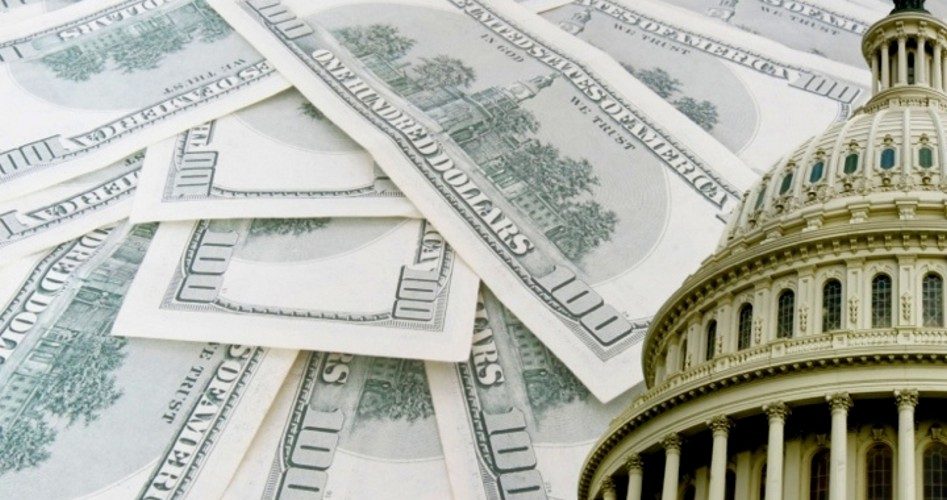
President Obama has pledged to sign into law the “Bipartisan Budget Act of 2013.” Supposedly a bipartisan compromise, the budget deal negotiated by Democratic Senator Patty Murray (Wash.) and Republican Congressman Paul Ryan (Wis.) would increase discretionary spending limits over levels set by the sequester law signed two years ago; it would fund ObamaCare; and it would increase taxes — baggage “fees” for airline traffic.
Obama praised the Murray-Ryan budget deal during his December 20 press conference because it “unwinds some of the damaging sequester cuts that created headwinds for our economy. It clears the path for businesses and for investments that we need to strengthen our middle class, like education and scientific research. And it means that the American people won’t be exposed to the threat of another reckless shutdown every few months.”
{modulepos inner_text_ad}
On the other hand, House Liberty Caucus Chairman Justin Amash (R-Mich.) summed up the bipartisan budget deal pushed by House Speaker John Boehner and Democratic leaders in Washington with this quip on his Facebook page: “Republicans will agree to more spending, and in exchange, Republicans will get higher taxes.” But even though the House Speaker ultimately needed Democratic votes in the December 12 roll call vote (332-94) to pass the bill, most House Republicans voted for the bill’s higher taxes and higher spending. Only 62 House Republicans opposed the bill. In the Senate, 36 of the 44 Senate Republicans voted against the bill December 18 (the total Senate vote was 64-36).
It’s understandable Obama was happy with the spending bill, as the Congressional Budget Office noted that the bill would significantly increase spending and deficits over the next two years:
CBO estimates that, if appropriations for 2014 and 2015 equaled the revised limits, discretionary outlays would be roughly $62 billion higher over the 2014-2023 period than if appropriations for those years equaled the limits in current law. (Nearly $48 billion of the anticipated increase in discretionary outlays would occur in 2014 and 2015.)
President Obama noted in his December 20 press conference that he expects the bipartisan agreement to become precedent for future agreements for more spending and higher taxes: “I hope that creates a good pattern for next year, where we work on at least the things we agree to.”
The tax increase in the budget deal would charge a $5.60 baggage and screening fee for each one-way airline trip, compared with $2.50-$5.00 charged for current flights (depending upon layovers), which congressional budget experts estimate will raise some $12.6 billion in new tax revenue over 10 years. The bill would also extend for two more years some other “fees” by the Customs and Border Protection Agency that would raise an additional $6.8 billion, and end some tax fraud that would bring in another several billion in new tax revenue.



